Had the hotel been a little bit cleaner and less noisy, I would have got lazy and never left Aleppo. Time, however, had come to pedal further south. My next planned stop were the famous dead cities of al-Barah and Sirjilla.
Just before Ariha I passed through the first military checkpoint. Soldiers just smiled to me, while smoking cigarettes and leaning against sand filled bags. I took it as a good sign and turned into nearby olive grove to camp overnight. On the next morning I crossed the highway and headed into nearby hills. On the next checkpoint the guard asked me for the passport, but gave it just a brief look and, after noticing it was written in strange alphabet, just waved me to go ahead.
Quite close to my destination, at the end of Marayam village, there was another checkpoint. Soldiers had seized unfinished building and installed themselves inside, with a tank standing proudly in the front of the house.
The soldier outstretched his hand to get my passport. He seemed to be relaxed, but instantly got excited. I don't know if that was because of the sight of a camera, or maybe of the Iranian cover on my document. In few minutes I was sitting next to two officers and being asked a row of questions.
Coffee and tea lubricated the interrogation and I tried to keep calm, but when a soldier began unpacking my baggage clumsily, I protested and demanded that I handle my baggage myself. Fortunately, the first bag they searched contained the computer, and this seemed to be enough to skip other panniers. Instead, I had to browse through my photos, and show last dialled numbers on my phone. All my details were reported through a radio to someone.
"Can I go to al-Barah?", I asked when the search finished. "No", replied the officer. "We have problems with terrorists there and it is not safe. You will have to turn back".
"Are we done then? Can I go now?", I said gathering my electronics back. "No", was the short reply. "Are we waiting for someone?", I continued. "No, we just have to secure your way and you will go at a specified time".
Of course, that was a lie. But while waiting, I had a short talk with Mohammad, the only soldier who spoke some more advanced English. He came from a village some fifty kilometers away, and was doing the mandatory military service. Normally it takes 18 months, however in the time of emergency he was already one month overtime and no signs appeared that he would go home soon. "You know", he said, "there are some people who want Assad to go away, like those who were against Qaddaffi in Libya. But I don't know why, because life in Syria is very good". There was, of course, no chance to talk about politics, but he was the first Syrian who at least spoke a word about it, and not changed the topic after stating that there were problems.
Soon a 4x4 Toyota arrived and a plainclothed officer welcomed me. He was about sixty, spoke intermediate English, and had such bad sight that I had to spell all the details from my passport. Probably I could claim to be Michael Jackson himself, but having nothing to hide, I just answered all the questions sincerely. They also included my past and future itinerary through the country, including even the name of the hotel in Aleppo. There was another slideshow of my photos, and I was asked to erase one, where a part of a wall sign got accidentally into, raising some suspicions.
"So, is that true I cannot go to al-Barah and Serjilla?", I asked him. "You can go", he surprised me, "but I'm strongly advising you not to. We have problems there with terrorists. You may go, if you wish, but you have been warned and we cannot assure your safety there in any way", he summed it up.
I know very well that men in uniform should rarely be trusted, and the words of plainclothed officers should never be believed. I hesitated, but quickly came to a conclusion that if there had been anything interesting going on, I would have never been allowed to pass. If he said I could go, that meant his words and the truth could have something in common. I agreed to turn back, and the meeting was over.
There were more checkpoints as I continued along the highway, but no one even tried to stop me. Just before the mountains, I turned south again, to go along the foot of that range. My plan was to cross it on the next day, going the only mountainous road in Syria, climbing to a pass at around 1300m.
Looking for a place to camp in this fertile valley, I stumbled upon a next checkpoint. The scenario was similar. I gave the passport, just to be asked to go to a building occupied by the military, where an officer welcomed me and asked what the hell I was doing there. To finish it quickly, I showed my planned way on the map and took care not to open my front bag, which contained the camera. Nobody spoke more than a handful of English words, but the military training obviously improved pronunciation, as I could recognize Arabic words, which is not so easy while shopping at bazaars. The soldiers were quite helpful, and despite I had already known the way, explained it to me in details. I thanked them, and was about to leave, when one of the soldiers brought a heavy machine gun into the building.
"Nice?", he asked. "Nice. Can I shoot it?", I replied. The other soldiers laughed, but he dropped the big gun and took his personal one. "No, but you may shoot this one". I don't need more invitations. Although he held the gun and did not give it to me, I could pull the trigger. Just to lose hearing in my right ear for few minutes. Few thanks and farewells later, after having politely refused a pickup ride, I pedalled out. The soldiers at the gate must have been surprised to see me leaving, after having heard the shot.
The next day was marked by a horribly steep climb in full sun. The view from the top is worth it. On one side I could see a big part of Orontes valley, backgrounded by the hills where "terrorists" camped and military helicopters operated. On the other side, there was the Mediterranean Sea and a beautiful sunset over it. With the last rays I could see the remains of Qallat Salah ad-Din, one of the greatest castles in the area, where Muslims and Christian crusaders fought ages ago. Then I descended to Lattakia.

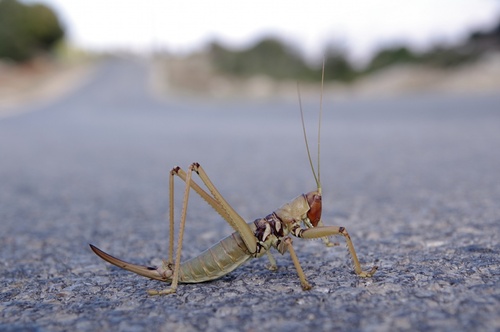
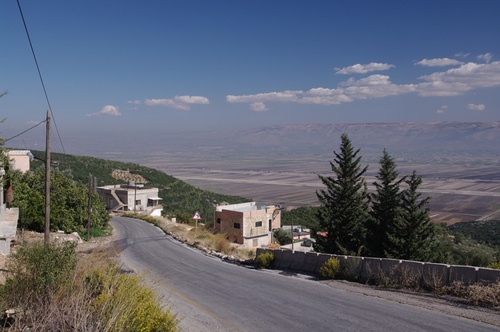
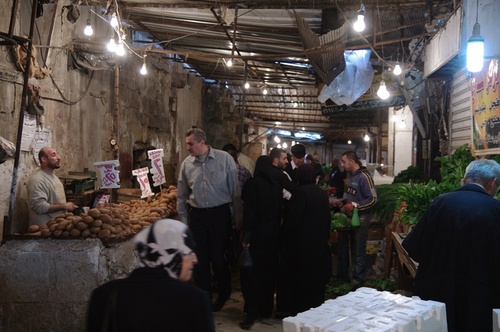
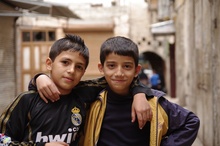
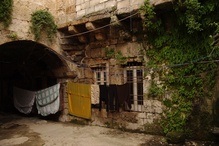
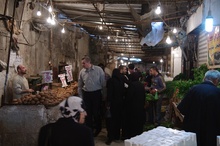
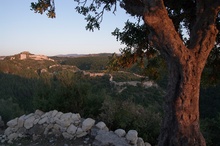
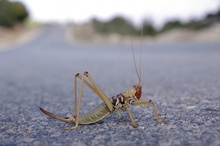
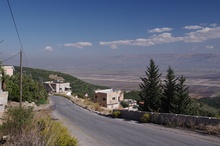
Comments:
Matt Chennells
Just saw your thread on the lonely planet site about currently cycling through Syria and saw the route you are planning to take down Africa. A friend and myself are doing a similar journey, but from london, and we are currently in turkey and cycling to the south and then flying to Amman in Jordan. We didnt think you could get into Syria anymore but you've shown that you can. Send us an email and we can link up in Jordan! happy cycling brother
mama
siostra:)
TBE
Chris
I'd love to do this.
thinking of visiting Syria in Jan.
bujnos